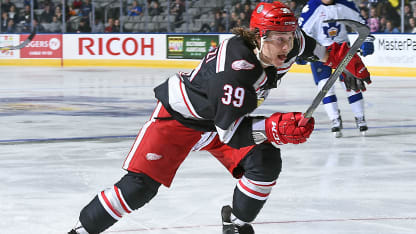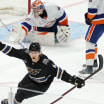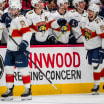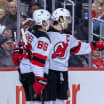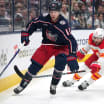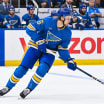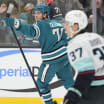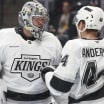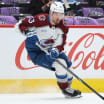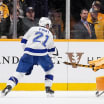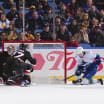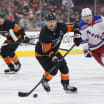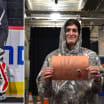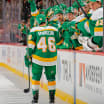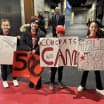The best-of-7 series is tied 1-1 after the teams split the first two games in San Jose; Grand Rapids won 3-1 in Game 1, then San Jose won 4-2 in Game 2. Grand Rapids, which is 4-0 at home during the postseason, will host Games 3-5 starting Wednesday.
"I know our guys get fired up to play at home," coach Todd Nelson told the Grand Rapids website after Game 2.
Each team is loaded with prospects and a strong collection of proven veterans, and it plays modern-day hockey centered on puck possession, mobile defensemen, a strong forecheck and a power play that can punish undisciplined opponents.
The Red Wings not qualifying for the Stanley Cup Playoffs ensured a strong playoff roster for Grand Rapids, which swept Milwaukee (Nashville Predators) in three games in the best-of-5 first round and then defeated Chicago in five games in the best-of-7 second round.
San Jose defeated Stockton (Calgary Flames) in five games in the first round after taking a 2-0 series lead, and then defeated San Diego (Anaheim Ducks) in five games in the second round.
Early in the first round San Jose added forwards Timo Meier and Marcus Sorensen from the Sharks. Meier, who had 14 goals in 33 AHL games, and Sorensen, who had 17 goals in 43 games, joined a deep group of forwards that include Ryan Carpenter, the leading AHL playoff scorer with 16 points (eight goals, eight assists) in 12 games.
Those forwards are joined by perhaps the top group of defensemen in the AHL. Led by Tim Heed, Joakim Ryan and Julius Bergman, San Jose defensemen have 39 points (nine goals, 30 assists) in 12 games. Joining them are rookie Nick DeSimone, who has five points (one goal, four assists) in 11 playoff games after signing with the Sharks on March 30, and Mirco Mueller, a first-round selection (No. 18) by the Sharks in the 2013 NHL Draft, in his third pro season.
Grand Rapids leads the AHL with 3.90 goals per game during the playoffs, while San Jose is third at 3.33 goals per game. Each team can control play for long stretches. San Jose is averaging an AHL-best 37.4 shots on goal per game during the playoffs and had 20 shots in the first period of Game 2 against Grand Rapids. Grand Rapids is third with an average of 34.8 shots per game.
The power play has helped energize Grand Rapids. After finishing first in the regular season at 24.4 percent, it's second during the postseason at 22.7 percent.
Forward Tyler Bertuzzi, a second-round pick (No. 58) by the Red Wings in the 2013 NHL Draft, is tied for the Grand Rapids scoring lead with 11 points (five goals, six assists) in 10 games. AHL veteran Ben Street, 30, also has 11 points (three goals, eight assists).
A blend of prospects and veterans give Nelson strong forward depth. Rookie Evgeny Svechnikov, the 19th pick of the 2015 draft, has nine playoff points (three goals, six assists) in 10 games after he had 20 goals in 74 games during the regular season. Mitch Callahan, Matt Ford, Matt Lorito, Tomas Nosek and Eric Tangradi also have been offensive contributors.
San Jose also has a strong power play, which was seen in Game 2 when it went 3-for-5. It's third in the playoffs at 22.0 percent.
Goaltender Troy Grosenick, the Baz Bastien Award winner as the top AHL goaltender in the regular season, continues to excel for San Jose during the postseason. He is 8-4 with a 2.27 goals-against average and a .920 save percentage in 12 games.
Jared Coreau has been strong in goal for Grand Rapids, going 8-2 with a 2.53 GAA and .915 save percentage in 10 games.
Each team has the chance to take control of a tight series in Game 3.
"We had a big opportunity that was lost," Ford told the Grand Rapids website after Game 2. "I think before coming out here if you had said we could have the split and home-ice advantage going home for three straight in Grand Rapids, I think we would take that."
